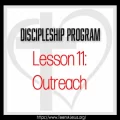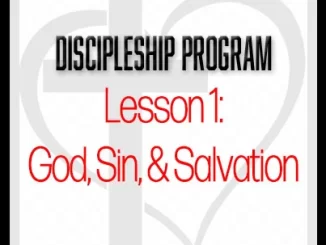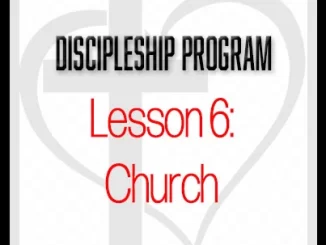One of the least liked things about church is often financial giving and stewardship. But it is important that you understand what it is and why it is important. As we have discussed previously, giving can be viewed as worship when it is done with a grateful heart and with the right attitude.
Giving is an act of gratitude and obedience. Through it we show our love for God and His people. We recognize that everything we have is a gift from God and we use it to bring Him glory. Giving is not meant to be an option. The Bible is clear that giving is a requirement. Jesus taught us in Matthew 6:2 WHEN we give, not IF we give.
Our giving is between us and God. It is not meant to be something we do to impress others or to gain praise from someone (Matthew 6:1). Our giving should be done to glorify God, not for recognition (Colossians 3:23). His approval is the only thing that should matter to us.
Stewardship
A term you hear associated with giving and finances is stewardship. Stewardship is being responsible for management of the resources (money, items, teams, etc.) and responsibilities we have been given by God. It is about us recognizing that what we have been given has come from Him and then acting responsibility to care for it and bring Him glory.
We need to understand that God owns everything we have (Psalm 24:1). He gives us stewardship over His creation (Genesis 1:28) and His possessions and expects us to act responsibly with it (1 Peter 4:10).
We can be stewards of more than just money. We can be stewards of our time, of our families, of teams we lead in church. We can be stewards of many different things, so we want to be wise in how we manage them. There will come a day when we will be held accountable for what we have done or failed to do with the things He has given us. We see that in Matthew 12:36: “But I tell you that everyone will have to give account on the day of judgment…”
Here are a few examples of Biblical Stewardship
- Environmental – caring for God’s creation of the earth and natural resources
- Financial – responsibly managing and using finances entrusted to us by God
- Gifts and Talents – recognizing those spiritual gifts we have been given and using them for His Kingdom
- Material – managing things like our homes, cars, and possessions
- Relationships – maintaining healthy, godly relationships with others
- Spiritual – northing our faith and helping others grow in their faith
- Time – prioritizing our time
Tithing
Tithing refers to the process of giving one-tenth of one’s income or resources to a religious organization or church. You can compare it to the taxes the government takes from your income, but in relation to a church. Tithing is a Biblical act of worship. Tithing is a way we show our trust in God over our lives and finances. He doesn’t NEED our money or whatever we are giving.
Tithing was a requirement of the Law where the Israelites were to give ten percent of the crops they grew and the livestock they raised to the temple (Leviticus 27:30; Numbers 18:26; Deuteronomy 14:24). The Law required a tithe for the Levites, a tithe for the use of the temple and feasts, and a tithe for the poor of the land – so there were multiple tithes they were required to provide.
The tithe was originally instituted to support the Levites who had no share of the land. They were doing the Lord’s work and relied upon their brethren to support them through tithes (Numbers 18).
Jesus’ death on the cross fulfilled the Law. Nowhere in the New Testament are we commanded or required to tithe. But we still see the heart of the early believers and their generosity. The New Testament is still full of examples of giving and generosity.
We do not tithe to earn God’s love or approval. We already have His love. In Matthew 23:23 we see Jesus warning against focusing on the rules or the process of the tithe rather than more important things. Our heart needs to be in the right place. We are not tithing or giving for approval or because we must. We give because we WANT to, because we know we have been blessed with everything He has given us, and we want to thank Him by giving a portion back to be used to further glorify Him. 2 Corinthians 9:7 tells us, “Each of you should give what you have decided in your heart to give, not reluctantly or under compulsion, for God loves a cheerful giver.”
Tithes and offerings are not the same. A tithe is specifically ten percent of your income. Offerings are anything extra that you give beyond your original tithed amount.
A common question asked is can a tithe be given to any religious organization or does it have to be given only to the church? This is something that you will have to decide for yourself. Many who argue FOR the church only tithing recipient cite Malachi 3:10 where it says to bring all the tithes to the storehouse. But in the New Testament we had the establishment of many churches and there was no longer a single storehouse (the temple) for people to help support. Those who support the idea of the church being the only acceptable recipient claim that the church (regardless of how many churches we have established) is now the storehouse that the tithes are brought to. But there is nothing in the New Testament to support this idea.
Regardless of WHERE you give, the key is to remember that we are investing in the Kingdom of God. This investment has eternal returns. We must invest into the things of God if we want to see lives changed generation after generation. Whether you give to a local church to use for growing the Kingdom or whether you donate to a religious organization that seeks to minister to others, the choice is yours and God will use it to bless people. Just do your research and make sure you are giving to a bible based, godly organization that will be wise stewards of your donation.
Study Questions
- What does it mean to be a good steward?
- What types of things can we be stewards over?
- Do Christians HAVE to tithe? Why or why not?
Think About It
Consider some of the things you have that you manage or possess. How can you be a better steward over them? What are you doing currently that you should change?
Discipleship Program Index | Lesson 11 | Lesson 13








Be the first to comment